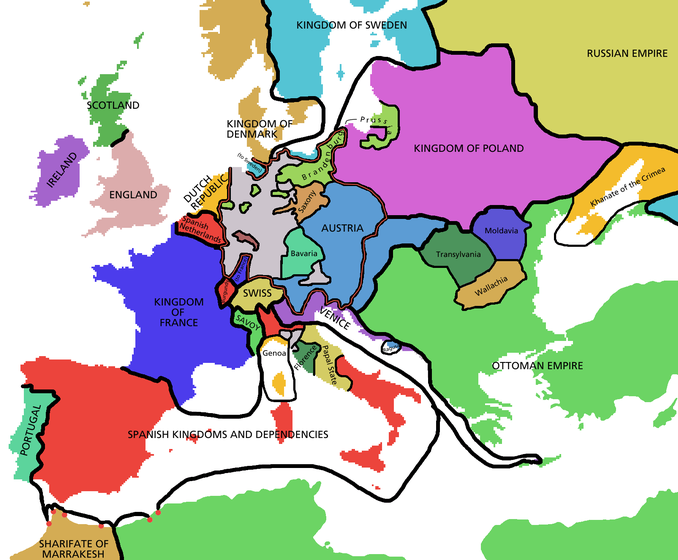by Jim Riehle
Many of us who trace our roots back to the Baden region of Germany are aware that family records from local parish churches generally go back only as far as about 1650. This should not be surprising to anyone familiar with the Thirty Years War.
The Thirty Years War (1618-1648) was a result of conflicts of interests of the European and Scandinavian powers, the Holy Roman Empire, and the German Princely States and Free Cities: everybody in Christendom was involved. Because of the details of the initial fighting and the expressed motives of many of the major combatants, casual observers often judge this conflagration to have been mostly about religion. Historians, however, believe that territorial lust and dynastic competition were more important; easy to accept when one recalls that Protestant Saxony was initially aligned with Catholic Bavaria and, later, Catholic France (with foreign policy in the hands of Cardinal Richelieu) joined forces with the paladins of the Reformation. While the fighting was spread throughout Germany, a few areas (such as Baden) were particularly busy.
Link for Map with more German Detail
War is always hell, but this particular war was a deeper and longer hell for the populations on-site due to the then current state of European warfare practices. Up to and during most of the Hundred Years War, it was widely held that battles be fought by nobles as the common man was judged to be too oafish and cowardly to be of any potency (a belief that was vigorously supported, no doubt, by the peasant lobby.) Nobles also could afford war-horses. But by 1600, the longbow had been proven to be vastly superior to mounted armour and large numbers of peasants were required. Also, peasants not quickly killed were expected to pillage for their physical needs. When a conflict is sustained under such conditions for thirty years it is little wonder that mass depopulation; agricultural, commercial, and industrial ruin; and the disruption of any remnant of social nicety (such as parish record keeping) would result.
The stunning successes of King Gustavus Adolphus of Sweden, using paid, uniformed, fed, career soldiers changed much in future conflicts, but not in time to make life any better for our early seventeenth century ancestors.
Jim Riehle
Lindsay, Ontario, 2004
Jim is the son of Joseph E. Riehle, grandson of Albert J. Riehle, great-grandson of Francis A. Riehle and gg-grandson of Clemens Riehle who came to America from Baden, Germany in 1854.
19th and 21st Century Baden Maps
Share this page with family on
social media
